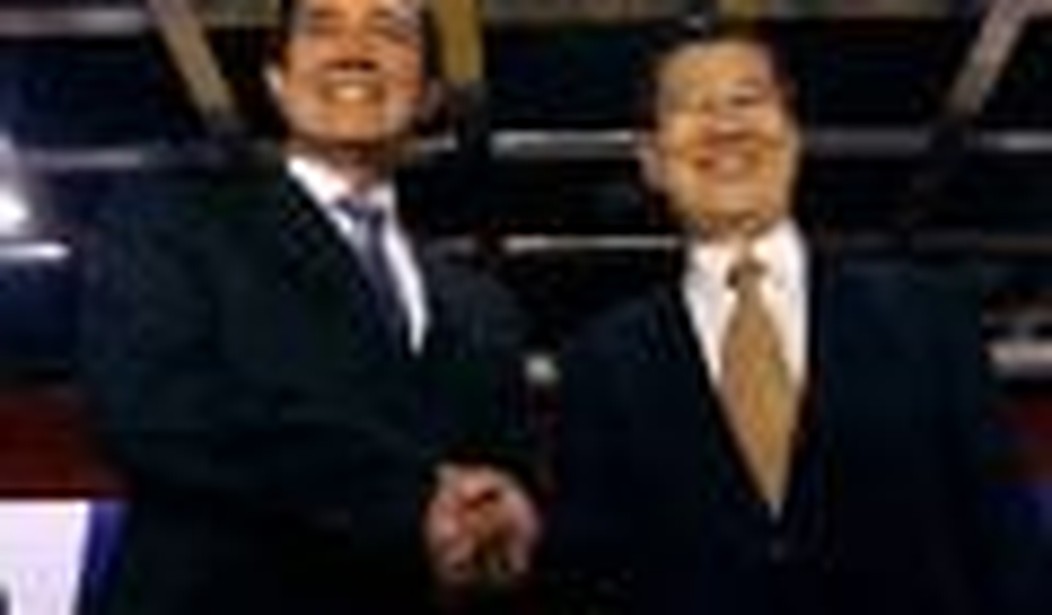Nearly suffocated by the coverage of the Iraq War’s fifth birthday, the Chinese crackdown in Tibet, and the rising floods in the Midwest, the U.S. government extended gentle plaudits as one of Asia’s few democracies, Taiwan, elected a new president. Given the potentially explosive energy that underlies politics in Taiwan — not every democracy, after all, carries the weight of over a thousand missiles and the vexation of the world’s most populous nation to the voting booth — the lack of attention it so graciously receives is often baffling.
Of course, this year, unlike previous years, there were no fireworks to attract the world’s wandering eye, like a curiously unsuccessful assassination attempt on the president or an economic standstill brought upon by a rain of missiles from China.
Yet, just as Taiwan’s nascent democracy had done in the early 90s under President Lee Tung Hui by hanging up its hopes of invading China and undertaking to scrape away all of the authoritarian residue that such an effort entailed, the election of the Chinese Nationalist Party’s golden boy Ma Ying-jeou has created an opportunity for the United States, China, and — yes — Taiwan to reassess their relationship.
Whether or not that will happen is another issue altogether.
President-elect Ma, the former Harvard law student and mayor of Taipei, trounced the Democratic Progressive Party’s Frank Hsieh on Saturday, effectively ending the DPP’s eight years in office. For many in Taiwan, this defeat represents a departure from what they see as the failures of President Chen’s DPP to address the growing inquietude Taiwanese people have regarding their stagnant economy and the competitiveness of their education system on an international level.
The Chinese National Party (otherwise known as the Kuomintang or KMT) is the party that fled China in defeat to set up base in Taiwan in 1947 and for decades was the vehicle through which the government exercised its authoritarian designs.
The road back to power was, if anything, a splendid exercise in PR. While the DPP did indeed control the presidency from the momentous election of President Chen in 2000, the KMT never lost its majority in the Legislative Yuan and took full advantage of it, boycotting the passage of any and all legislation it did not find beneficial. Even as they were blocking efforts by the DPP to relinquish it of its stolen assets — the KMT’s possessions in land and business shares which are illegal by Taiwanese law but have made the KMT the richest political party in the world — the KMT was able effectively to steer their opponents into the spotlight. They highlighted Chen and the DPP’s inability to get things done, conveniently downplaying their own role in the bogged-down government.
Then, when all the DPP had to do was point out their efforts in saving the economy and show how the KMT was letting it whither, they played the role that the KMT had written for them. Hsieh’s campaign, with the help of President Chen, wholeheartedly undertook to rally the DPP’s base with cries of Ma’s infidelity towards Taiwan. Good old-fashioned patriotism.
But something had happened: the base had shrunk. Evidently, somewhere in the fight against the KMT’s oppressive ideals of governance in the 70s and 80s, the democracy activists and all those who rallied around their calls for justice got married and had children, and their children had children. Two generations grew up knowing nothing but a democratic Taiwan.
The younger Taiwanese, consequently, don’t play by the same rules as earlier generations, and that means they don’t respond well to the personal attacks that all but define politics in Taiwan. Thus, when DPP candidate President Chen rails against Ma’s hidden allegiance to China evident in the inscription on his late father’s urn, they cringe. Then, hearing Hsieh hound Ma over a supposed U.S. green card, they ask, “How’s this going to improve my child’s education?”
As the eminent Taiwan scholar Shelly Rigger showed in a recent study on so-called Taiwanese nationalism, these new generations coming of age in Taiwan consider themselves Taiwanese, consider their country to be Taiwan, and have no desire for Taiwan to become a part of China any time soon. Yet, they don’t villainize China, either. It is not, according to Rigger, a “zero-sum” debate in which being pro-Taiwan is defined as being anti-China. Conversely, they see China as a land of opportunity, and while most don’t want to permanently relocate there they see the necessity to chuguo, or “go abroad,” to China for months or years if necessary.
The dynamics are shifting here in Taiwan. The electorate and its president are changing, and China, for the first time in a long time, isn’t brandishing its sword over it. This, it seems, should be an opportunity for the United States to also change its policy towards Taiwan, inviting high-level Taiwanese officials to come to Washington for official talks, because China’s been in the driver’s seat too long.
Robert Maguire is the author of The Only Redhead in Taiwan. Aside from Asian affairs and broader international relations, he has also studied and written about European politics from his time as a student in France.









Join the conversation as a VIP Member